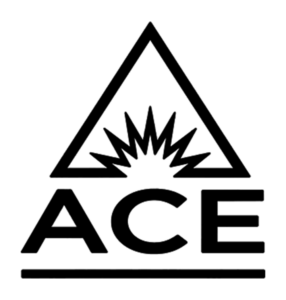When we think of SFF publishers, I'm sure the usual ones come to mind. Tor, Orbit, Del Rey, etc. While there are other imprints and publishing houses that do publish genre fiction, for the sake of this discussion I'm going to focus ones that release exclusively sci-fi and fantasy books.
Tor (Macmillan)
Tor is actually an imprint of Tor Publishing Group, which is under the parent company of Macmillan. The mission of Tor, taken from their website, is to "publish out-of-this-world genre fiction and bring readers books that fuel the imagination". Some of their high profile award winners include the 2020 Hugo Award Winner A Memory Called Empire, the Locus Award Winner Kusheil's Dart, and the Hugo Award winner The Three-Body Problem. I would say that all of these follow the more classical epic style of SFF.
Their more recent publications tend to feel more experimental in nature and are not only published by widely diverse authors, but the characters in the books are also more diverse. I do think this is following the trend in readers and the general population. People want to read more types of stories that don't follow traditional plots. There have been more of the "cozy" variety of fantasy published by Tor recently, including Legends and Lattes and The House in the Cerulean Sea, as well as genre mixing books like the fantasy/mystery The Library of the Dead and a slough of fairytale retellings.
As they do tend to experiment more with the books they publish, I have found that I don't tend to enjoy the more literary nature of many Tor recent releases. While they have and probably always will publish more epic and high fantasy books, which I would say are more traditional, much of their main focus tends to be on award bait books that are much more contemporary feeling. Now, this is not a bad thing in any way, shape, or form. These books just don't tend to be the type of fantasy and sci-fi that I gravitate towards.
If you expand Tor to all of the imprints, the Tor Group does tend to publish a lot more novellas as well as completely free short stories. This is AMAZING. They can garner such a wider audience with their short stories and then sell their novellas and novels. The larger issue with that they may run into, is that they charge upwards of $30 for a new release hardcover. I can only speculate that they charge so much because they do give out so much free content, but that is another reason I don't tend to read as many new releases from Tor, unless I get them from the library.
Orbit (Hatchett)
Orbit is an imprint of Hatchett Books and publishes science fiction and fantasy out of the US and is an imprint of Little, Brown books in the UK. Their popular books include the Hugo sweeping "The Broken Earth" series and Ancillary Justice, which was the first novel to sweep the Hugo, Locus, and Nebula in the same year.
From the books I've read that have been published by Orbit, they do tend to be less experimental overall. That's not to say they don't release genre mixing books or more literary fantasy like the romantic comedy That Time I Got Drunk and Saved a Human, the folktale inspired Fathomfolk, and the steampunk novel Senlin Ascends. However, even when you look at these books, they explore more common themes and include more traditional fantasy creatures. Their sci-fi books also weigh far more heavily towards epic space opera's then anything experimental. Again, this is neither a good or bad thing, I just do tend to gravitate towards Orbit new releases as they are more up my alley.
One thing that I greatly appreciate about Orbit, is that they have been publishing a lot of debut authors, as well as picking up indie publishers. Just looking at their New Voices for 2024, there are already over ten debut authors whose first novel are being published this year and they are all incredibly diverse. Another thing I enjoy is that Orbit seems to publish paperbacks rather than hardcovers. This is my preference, and it cuts the cost a lot as most, if not all, of their upcoming releases are on pre-order for $20. I am much more likely to buy a $20 book than a $30 book. One downside is that while they do release a lot of free excerpts, they don't have much free material and they don't tend to focus on novellas or short stories.
Del Rey (Random House)
Del Rey is a SFF imprint of Penguin Random House. Yes, I said A, not THE imprint as Random House has multiple imprints devoted to SFF, Del Rey is just the exclusive SFF publishing imprint. They don't tend to favor sci-fi nor fantasy, although I have found they don't really publish much hard sci-fi. Instead, a lot of them tend to mix the genre's together. One example of this would be Red Rising. I find their marketing confusing as well, as they have labeled books I would classify as one genre as the other, like the "Demon Cycle" which is fantasy, in my opinion, although they've sorted it in their sci-fi section.
This imprint doesn't seem to break many molds or take much chances, and instead follows popular trends, which is great for business. With the recent boom of the romantasy subgenre, Del Rey has picked up many of them, including Emily Wilde's Encyclopaedia of Faeries. They also publish all of the "Star War" universe books.
One downside is that you can't buy books directly from the publisher, so you are redirected to existing online booksellers. They also don't have any free content, which honestly is expected for such a large publishing house. They have a huge monopoly. I also will say that they have some of the most eye catching covers.
Ace (Penguin)
Ace is Penguin's main SFF imprint. They have published some massive bestseller's in the past, including all of Jim Butcher's books, 2001 Space Odyssey, and The Left Hand of Darkness. This is the oldest SFF imprints, having been established in 1953. This publishing imprint did a ton of work putting genre fiction front and center in publishing, especially since before, these stories were largely focused in magazine publications. In fact, alongside Ballantine Books, which publishes more than just SFF now, it led the way for other publishers to even want to publish science fiction.
Ace is still going strong today, with massive bestsellers like The Book that Wouldn't Burn. One thing that I noticed is that unlike other publishers, Ace does have a large focus on urban and paranormal fantasy, while also publishing traditional fantasy as well. With Jim Butcher still publishing through them, they also have Patricia Briggs and urban fantasy releases from Kim Harrison and Benedict Jacka
Admittedly, I am not a huge urban fantasy fan, so while looking through their recent releases I haven't actually read that many of them. Their hardcovers are also around $30, although their paperbacks are much more affordable at around $20 each.
HarperVoyager (HarperCollins)
Voyager is HarperCollins SFF imprint. They publish what seems to be the widest variety of SFF books, from cozy to romantasy to epic to dark academia and more. I've found they have a stronger focus on fantasy than sci-fi, but the sci-fi. They have big hitting authors like Raymond E. Feist, R.A. Salvatore, R.F. Kuang, and Becky Chambers. These are all massive award winners or bestsellers.
I find myself generally enjoying every book I read that's published by HarperVoyager as well. They have a diverse book list and seem to have really great editors that are able to cut out a lot of fluff. I do find that their books are fast paced and interesting. I don't see them going anywhere as they continue to publish a respectable stream of SFF books every year. One of my favorites recently was The Adventures of Amina al-Sirafi.
There always seems to be some portion of their books on sale at any one point as well, which does influence how many books I end up reading from this publisher. Since they do have such a wide variety of subgenres represented, they do tend to have a lot of bestsellers.
Saga Press (Simon & Schuster)
The final of the "Big Five" publishers is Simon & Schuster, whose speculative imprint is Saga Press. Unlike the other four, Saga also publishes horror, which I think is a huge positive. Rather than having a separate imprint for horror, I appreciate that speculative fiction is all grouped together under one imprint. In terms of their SFF books, though, they have a huge variety. They have fantasy hard-hitters like The Will of the Many, Black Sun, and The Grace of Kings, all of which are vastly different.
I have found that their sci-fi is a miss more often than a hit. From the ones I've read, they seem to be extremely experimental in terms of structure and I've found they don't stick the landing. These include How to Lose a Time War, Persephone Station, and Vegabonds. I think I gave all of the last sci-fi books from Saga I've read no higher than a three star. Their fantasy, however, I have LOVED.
Their hardcovers are around $30, with their trade paperbacks being under $20. Overall, they seem to be around a mid price point on average.
If I had to put these in any sort of ranking, which would be purely out of enjoyment of my last reads, it would be as follows:
1. Orbit
2. HarperVoyager
3. Tor
4. Saga Press
5. Ace




Comments
Post a Comment